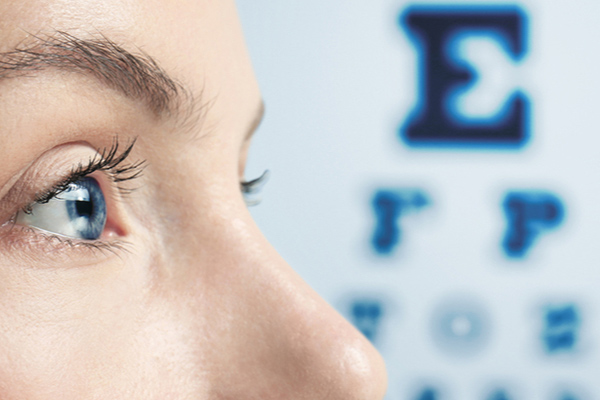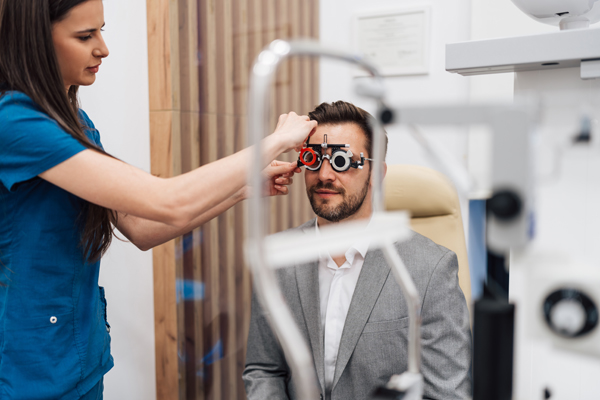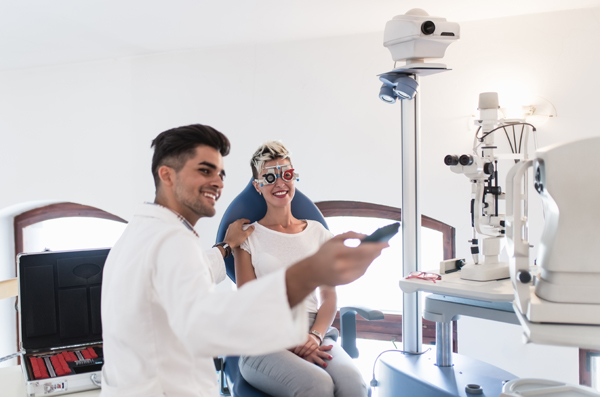Optometrist – How Diabetes Can Affect Your Eyes

The eyes are not only a window to the soul but to the general health of a patient, which is why optometrists are often the first to recognize and diagnose certain health conditions. Diabetes, a metabolic disorder that presents as high and unstable blood sugar levels for long periods of time, is one of those conditions. Through a thorough eye exam, an optometrist can see the signs of diabetes and help treat the conditions that occur with the disorder.
What is diabetes?
Diabetes is a type of metabolic disorder in which the pancreas is unable to function properly. This causes blood sugar levels in the body to remain consistently high. There are two main types, type 1 and type 2. Type 1 usually develops in childhood and occurs when the immune system attacks and destroys beta cells in the pancreas. These cells produce insulin, and without them the body is unable to produce insulin on its own. In type 2, the pancreas is unable to recognize and use insulin as it should or it is not able to produce enough insulin to function normally.
What potential vision complications can occur due to diabetes?
Untreated or poorly managed diabetes can lead to numerous serious health conditions, including eye damage known as diabetic retinopathy. This complication often has no symptoms in the early stages. It damages the blood vessels in the retina and is directly related to persistent, uncontrolled high blood sugar levels. Proliferative retinopathy is another complication and occurs when new and fragile blood vessels start to grow in the eyes as a result of retinal cells that are unable to receive enough oxygen. They can bleed, cause clots and lead to blindness.
Diabetics are also are at an increased risk of developing glaucoma, cataracts and blurry vision. All of these conditions can result in irreversible loss of vision if blood sugar levels are not stabilized.
What role does an optometrist play in diagnosing diabetes?
An optometrist performs routine exams with dilation to get a thorough look inside the eyes, which can reveal signs of the eye conditions that can develop from diabetes. Optometrists are often the first to diagnose these. For example, bleeding and fluid in the blood vessels in the retinas are signs of diabetic retinopathy.
It is common for optometrists to see damage to the eyes from diabetes before a patient has experienced other symptoms that indicate the condition has developed. Therefore, routine eye exams are important to help prevent eye damage from diabetes that can develop when there have been no other signs.
Conclusion
Diabetes that is poorly controlled can result in serious eye conditions and lead to blindness if blood sugar levels are not properly maintained. Optometrists are frequently the first to diagnose diabetes based on signs of bleeding in the retinas. It is important to always schedule routine eye exams to monitor for any signs of this disease as well as other conditions and protect one's vision.
Request an appointment here: https://www.carmieyecare.com or call Carmi Eye Care at (618) 374-0513 for an appointment in our Carmi office.
Check out what others are saying about our services on Yelp: Read our Yelp reviews.
Related Posts
A comprehensive eye exam does more than assess vision; it can also reveal early signs of various health conditions. Many systemic diseases affect the eyes before other symptoms appear, making regular exams essential to overall health care. Optometrists use advanced diagnostic techniques to detect conditions beyond vision problems, allowing for early intervention and treatment.Routine eye…
When it comes to eye care, understanding the difference between an optometrist and an ophthalmologist is essential in order to receive the appropriate treatment. While both professionals specialize in eye health, their roles, qualifications, and scope of practice vary significantly. Knowing when to consult an optometrist versus an ophthalmologist can ensure that individuals receive the…
Glaucoma is a leading cause of irreversible vision loss, often developing without noticeable symptoms until significant damage has occurred. Effective glaucoma treatment is essential for preserving vision and preventing further deterioration. Treatment options range from non-surgical interventions, such as medications and laser therapy, to surgical procedures for advanced cases.Non-surgical glaucoma treatment is often the first…
A diabetic eye exam can be a life and vision saver for a diabetic. Diabetes is a serious disease and one that can be difficult to manage. Medication, proper diet and exercise, and regular medical care can be helpful for controlling blood sugar levels and reducing serious damage to the body. In spite of best…


